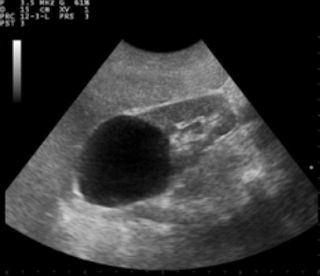All you need to know about Renal Cell Carcinoma or Kidney Tumor (FAQ)

What are the signs of a kidney tumor?
Kidney tumor or renal mass is a common diagnosis now, due to widespread availability of Ultrasonography. Now most of the kidney tumors are detected in early stages , when they are very small in size, during a sonography of abdomen done for unrelated problems. this is called incidental finding .
Some cases present with pain in abdomen and passing of blood in urine or a lump in abdomen.

Kidney cysts are cancers?
Renal masses can be a cyst or a solid tumor. Cysts are fluid filled cavities like a balloon filled with water.Renal cysts can be a simple cyst or a complex cyst.simple cysts are not cancers and mostly harmless. Complex cyst may have some risk of cancer depending upon severity of complexity.

Are All kidney tumors are dangerous?
All the Solid renal masses are not cancers, they may be benign (not harmful ) tumours like lipoma, angiomyolipoma or adenoma. Some Solid renal masses are malignant ( harmful ) tumors called renal cell carcinoma or Transitional Cell carcinoma.
How to know which type of tumor I have ?
Usually a CT scan or MRI of abdomen is able to differentiate between simple cyst or complex cyst and benign solid mass from malignant renal mass. In unusual cases a biopsy of renal mass is required.
Is biopsy absolutely necessary to diagnose kidney tumor . I am told tumour spreads after biopsy ?
Most of the cancers in the human body require a biopsy to confirm the disease before starting treatment, but in kidney tumours, imaging ( CT scan / MRI ) are very much suggestive and usually a biopsy is not required before starting treatment. In some cases like advanced (metastatic ) cases or unusual CT scan findings a biopsy may be required before starting treatment. Tumour does not spread after biopsy in the presently used technique for biopsy.its a myth
What type of Treatment is Recommended for Kidney Tumor ?

In cases of tumor localised to the kidney, treatment is surgery. The tumor along with the kidney is removed by operation. Operation can be done by open , Laparoscopic or robotic technique .
I don't want any Operation/Surgery .Can I get away without any operation ?
Depending on clinical conditions like tumour size, age of the patient and overall kidney function an option of active surveillance or monitoring can be advised. all the tumors need not be removed.
Some tumors can be ablated ( destroyed ) without any surgery by using radio frequency waves (Radiofrequency ablation (RFA) in suitable candidates with acceptable outcomes.
Can we save the kidney by any chance during the operation ?
In some cases , when the tumor is small in size and its possible to preserve the kidney, only the tumor can be removed preserving the native kidney (Nephron sparing surgery / partial nephrectomy ). this surgery can be done by Open or laparoscopic or robotic methods.

What are the options for advanced disease?
For the kidney cancers that has spread to other parts of body (metastatic ) can still be operated if all the tumors and metastatic disease can be removed, otherwise biopsy is required to know the type of kidney cancer and systemic therapy ( Targeted therapy like sunitinib/ axitinib/ pazopanib either alone or in combination with immunotherapy agents like pembrolizumab / nivolumab) can be started.
Radiotherapy may be given to disease that has gone to the brain.
No chemotherapy drugs are effective in renal cancers , therefore not routinely advised.
What is the survival chances in kidney cancers ?
Kidney cancers limited to the kidney have a very good outcome after surgery . they are curable. But contrary to this most of the advanced kidney cancers which have spread to other organs in the body have poor survival rates. median overall survival is only about 2 to 3 years .
What are the Causes of Kidney Cancer/ Tumor ?
Besides some genetic causes like VHL gene defects, there is strong association seen with tobacco abuse, obesity and hypertension.
Can Kidney Cancer be Prevented ?
Yes Kidney Cancer can be prevented to certain extent.
Specially In people with a family history of kidney cancer periodic check up after 30 years age is advisable, regular health check up can detect small tumors which can be easily cured.
Also the Following list is Recommended :
- Lose weight and avoid obesity,
- Stop Tobacco abuse,
- Check blood pressure,
- Have a healthy diet and
- Daily exercise to reduce the risk of kidney problems and kidney cancer
Treatment for RCC during COVID - 19
Principles of treatment- Optimum utilisation of resources, hospital beds , ICU for COVID and Non COVID patients
- Minimise hospital visit to maintain social distancing
- Minimise transmission from healthcare staff to patient ,from patient to healthcare staff and from infected patient to other patients
- Balance of oncological progression and risk of COVID related morbidity and mortality.
My sonography has revealed a Cyst in kidney- what should I do now?
A good sonography can differentiate between a simple or a complex cyst. For simple cysts no further work up is required , they can be monitored with periodic sonographies. For complex cyst further investigation like a CT scan is usually required, however chances of malignancy are usually small and this can be safely postponed for 3 to 6 months during this pandemic.
I have been diagnosed with kidney tumor and i have been advised to get it removed. can I delay this surgery ?

- Kidney tumors are usually a slow growing tumors. planed surgeries (radical nephrectomy or partial nephrectomy )for T1 (tumours less than 7 cm ) can be postponed in the current situation balancing the risk of tumour progression and risk of COVID infection. Discuss with your Uro-Oncologist.
- For bigger tumours T2 (more than 7 cm in size ) also depending on clinical situation surgery can be delayed by upto 3 months as this delay has not shown any decrease in overall survival or cancer specific survival.
- Surgery should not be delayed in c T3 stage tumours or tumours with a thrombus in renal vein or Inferior venacava.
I am on targeted therapy and Immunotherapy for metastatic kidney cancer- should I continue treatment ?
- Patients of metastatic kidney cancers on systemic therapy like targeted therapy (sunitinib/ Pazopanib/ Axitinib ) or immunotherapy ( Pembrolizumab / Nivolumab ) should continue the treatment if they are tolerating it well. They should see their doctor if they are having any adverse effects of the medicine.
- Any palliative surgery ( nephrectomy )should be avoided whenever feasible.
- There is elevated risk of potential pulmonary (lung ) toxicities of immunotherapy drugs.
- Poor-risk patients with poor performance status where the benefit of treatment is limited, best supportive care alone could be considered and systemic therapy should be avoided.
- Immune therapy regimes with a longer interval (4-weekly nivolumab or 6-weekly pembrolizumab) should be used where possible.
How to follow up
Patients under targeted treatment with excellent tolerance and who have been on treatment > 1 year and patients on follow-up post-surgery (> 6 months follow-up) should not visit hospital for routine follow up. Use of telemedicine is encouraged in these patients.

By : Dr Abhay Kumar